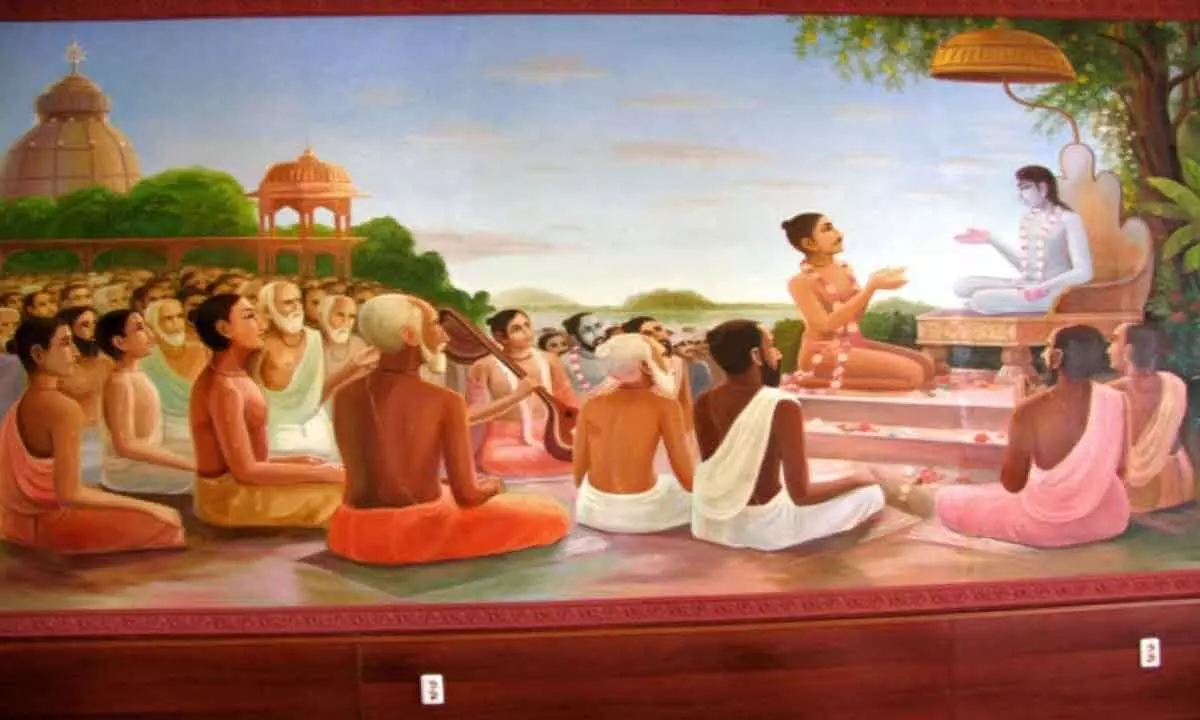Social Consciousness: Sanatana, The Eternal

Like what we saw about God, whatever is eternal cannot be negated. Human nature, called gunas, can be negated after realising God. Non-eternal issues like caste, which have nothing to do with religion, must go. Religious leaders must clear the wrong impression that caste is made by religion
Ill-informed remarks from high places cause pain. A couple of days ago, a high-ranking political leader called for the eradication of Sanatan dharma, which he equated with caste and called a disease like dengue or malaria. This evoked angry responses from the other end of the political spectrum.
As the word Sanatana means ‘eternal,’ we may see what is eternal in it. First, what is eternal? A mathematical equation that two plus two is four is relatively eternal so long as humans perceive objects in that fashion. The universe that existed a few billion years ago (even our traditional almanacs say this fairly accurately) will not remain after a few billion years. It is relatively eternal. But human experience shows that there is one unchanging entity from birth to death, that ‘I exist’. This statement is from an intelligent entity, which implies the presence of intelligence and existence. This awareness existed in the past, it exists now, and it will exist in the future. This consciousness and existence are primary components in all beings in creation. Logically, the cause of the whole universe should also be the same. It should be of the nature of consciousness and existence. Religion calls this cause God. There is no gender for this, so we cannot use the pronouns He or She, but use the pronoun It.
Here, there can be a problem. If we visualise this cause as located somewhere in space, we would be committing the mistake of confining God to a place. It will be another more significant entity like us, monitoring all our actions. This can be the story for a lay person but not for a philosophically minded person. Hence, we have to say that It is infinite. There is nothing else beyond It. This has no origin, no end. It is eternal. It is the source of the past, present, and future. Thus, we identified three aspects of this One eternal thing we loosely call God. They are consciousness, existence, and infinite nature.
This is an overly simplified summary of serious deliberations in Vedanta. As there can be nothing apart from infinite, Vedanta says that you and I and even an ant or mosquito are not apart from that. The components are the same. Only the mixing may be in different proportions, creating such diversity in human nature.
This led the sages of Vedanta to analyse human nature. They found three tendencies in all living beings. Manifesting in humans, these tendencies make some persons contented, truthful, peace-loving, knowledge-seeking and righteous. Some others are ambitious achievers, and others do not think much but can have blind beliefs, as Krishna analyses in the Gita. These tendencies were named sattva, rajas and tamas, commonly called gunas, which we discussed in some earlier articles. These gunas exist in all people in the world, in all countries, and animals. These are relatively eternal in that they live as long as creation exists. Humans, endowed with the above tendencies, naturally evolve into four broad categories, which the Gita calls varna. Texts mentioned only four varnas, but society needs several specialised services. When the Europeans came to India, they named these groups castes and found it convenient to attribute the creation of caste to religion. Many ignorant Indians, not having knowledge of texts, believed in it, and some found it convenient to believe in it.
Sanatana is the quest for Reality, which is eternal. It does not ask us to believe in a book such as the Veda but to go beyond Veda and seek truth. It is for a person who questions and seeks Reality.
Like what we saw about God, whatever is eternal cannot be negated. Human nature, called gunas, can be negated after realising God. Non-eternal issues like caste, which have nothing to do with religion, must go. Religious leaders must clear the wrong impression that caste is made by religion.
(The writer is a former DGP, Andhra Pradesh)














